Research
On this page we present current contributions to research in electrical engineering and information technology
On this page we present current contributions to research in electrical engineering and information technology
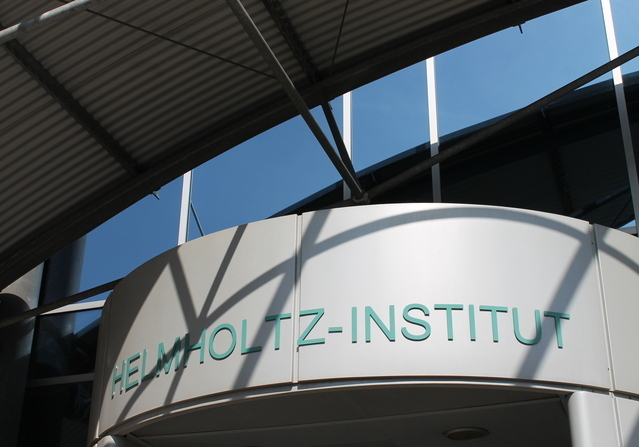
The lecture, entitled ‘Electrical impedance of muscle: from muscular dystrophy to Mars’, will be moderated by Professor Steffen Leonhardt, Chair holder of the Medical Information Technology (MedIT) at the Helmholtz Institute for Biomedical Engineering at RWTH Aachen University, on Wednesday, 25 September 2024.
In his presentation, Dr Seward B. Rutkove, Nancy Lurie Marks Professor of Neurology, Harvard Medical School Chair, Department of Neurology, Beth Israel Deaconess Medical Center, will talk about innovations in the field of skeletal muscle electrical impedance. His lecture will focus on primary disorders that impact muscle, including muscular dystrophies, amyotrophic lateral sclerosis, muscle injury and the effects of unloading, such as those caused by microgravity or partial gravity. He will then discuss methods and technologies for measurement, and review the data collected in a wide range of conditions in both human and animal models.
„It is necessary to clarify which analytical approaches are currently available and in which direction future research will go“,
indicates Dr Rutkove in his abstract, setting the scene for the discussion that will follow.
The ‘Colloquium on Biomedical Engineering and Related Areas’ is a regular series of events organised by RWTH Aachen University. The objective of the series is to facilitate interdisciplinary education in these fields and to encourage the interdisciplinary exchange of ideas.
A cordial invitation is extended to all students, clinicians, engineers and scientists to attend this illuminating lecture and engage in discourse with experts in the field of biomedical engineering.
The event will take place from 5 to 5:45 pm at the Helmholtz Institute for Biomedical Engineering at RWTH Aachen University, Pauwelsstraße 20, 52074 Aachen, Germany, seminar room 2.70. It will be coordinated by Prof. Dr. Klaus Radermacher, Chair of Medical Engineering, RWTH Aachen University. For further information please contact the secretariat at meditec@hia.rwth-aachen.de or call +49-(0)241-80 23870.
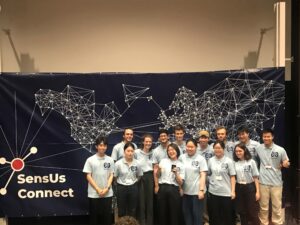
This years AixSense team at the SensUs competition 2024 ©RWTH
For the seventh time already, the 15 students of the AixSense team successfully took part in the SensUs competition, organised by Eindhoven University of Technology. This year, 18 teams competed against each other in the international competition with their point-of-care (PoC) biosensor solutions for the real-time detection of creatinine for monitoring acute kidney failure. The AixSense team also included 3 students from the Japanese partner university Tokyo Institute of Technology.
This year, AixSense won three out of five categories with its PoC and also took second place in the technological innovation and technical feasibility categories. Particularly noteworthy is the performance in the area of public relations and scientific communication: the team from Aachen received the Vlog Award for their video diary and AixSense also won the public voting for the Public Inspirations Award.
The Institute for Materials in Electrical Engineering 1 at RWTH Aachen University has been involved in the competition since 2018. Every year, Professor Sven Ingebrandt and Dr. Vivek Pachauri put together a team from various degree programmes. The team is supported by various structures and profile areas at RWTH, such as the Lab center for micro and nanotechnology (ZMNT), which advises the team on technical issues.
The annual competition encourages international and interdisciplinary collaboration in fields such as electrical engineering and micro-nanotechnology, transformative materials, biology, engineering and medical sciences, among others.
Interested parties can apply for the SensUs 2025 competition at pachauri@iwe1.rwth-aachen.de until November 2024.
Pr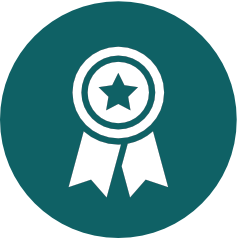 ofessor Dr. Mohamed-Ali Belabbas, this year’s winner of the ‘Friedrich Wilhelm Bessel Research Award’ from the Alexander von Humboldt Foundation, is visiting the Chair of Intelligent Control Systems during August.
ofessor Dr. Mohamed-Ali Belabbas, this year’s winner of the ‘Friedrich Wilhelm Bessel Research Award’ from the Alexander von Humboldt Foundation, is visiting the Chair of Intelligent Control Systems during August.
The Chair of Intelligent Control Systems will be the host during the funding period.
We congratulate the award winner and wish him a pleasant stay.
Further information on the sponsorship can be found on the website of the Alexander von Humbold Foundation.
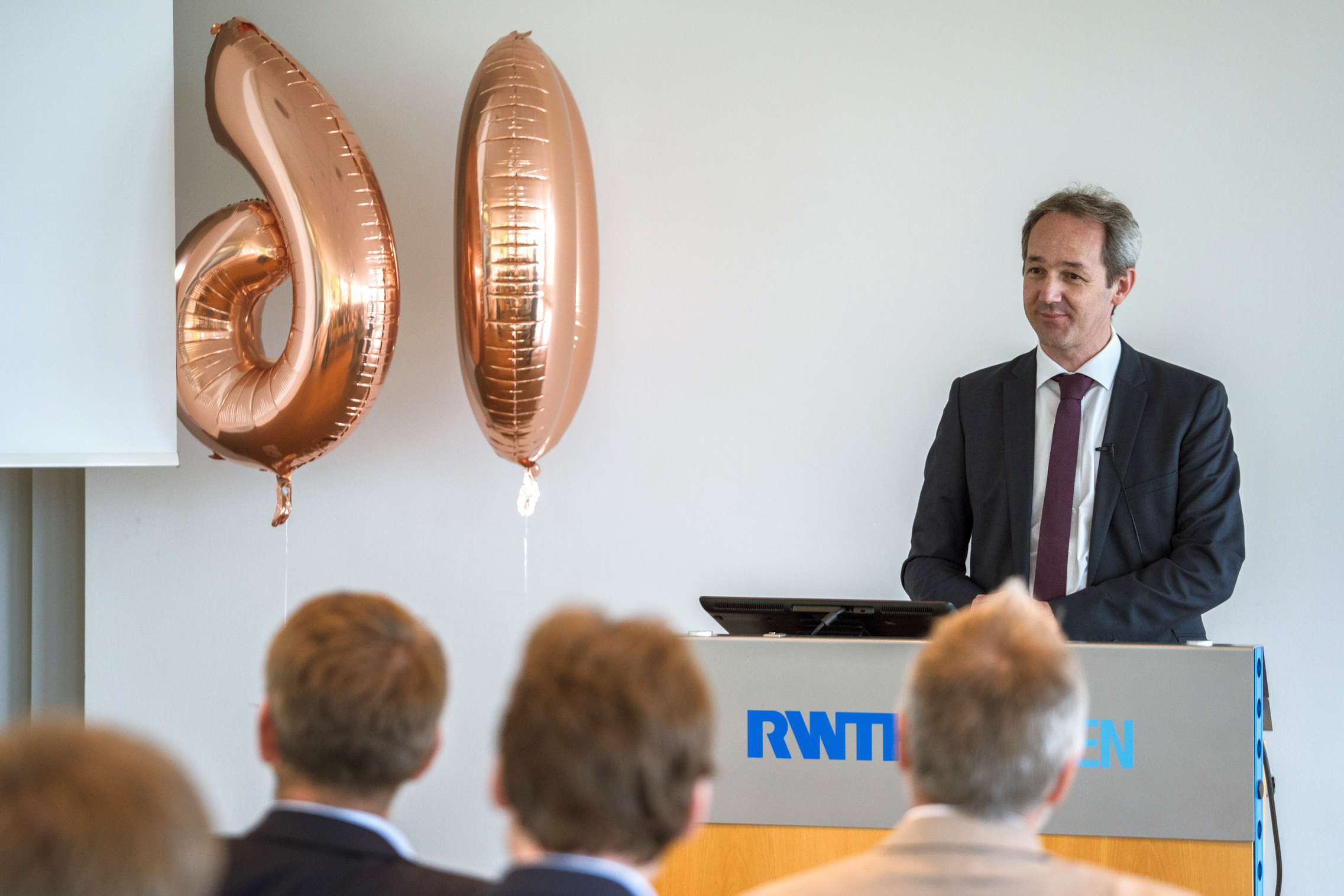
Prof. Dr.-Ing. Peter Jax, Head of the Institute of Communication Systems. © IKS
On 14 June 2024, the Institute of Communication Systems (IKS) celebrated its 60th anniversary.
This anniversary was celebrated together with project partners, colleagues and numerous alumni in a festive colloquium and evening event. The event provided an insight into the development of digital speech and audio communication. It was also an opportunity to look back over the past six decades and to discuss future challenges and opportunities in the field of communication systems.
“We would like to thank everyone who has supported the Institute over the past 60 years and look forward to many more successful years,” the IKS announced.
Professor Jax has led the Institute since 2015. He initiated a new name and a research focus on modern digital communication systems. Research continues to focus on speech and audio communication as probably the most important and natural link between us humans. The research deals with signal processing in communication systems, e.g. in hearing aids, hearables or immersive 3D telephony. The aim is to make digital communication systems as natural as “direct” face-to-face speech communication. Both model-based digital signal processing and machine learning methods are used in innovative hybrid solutions.
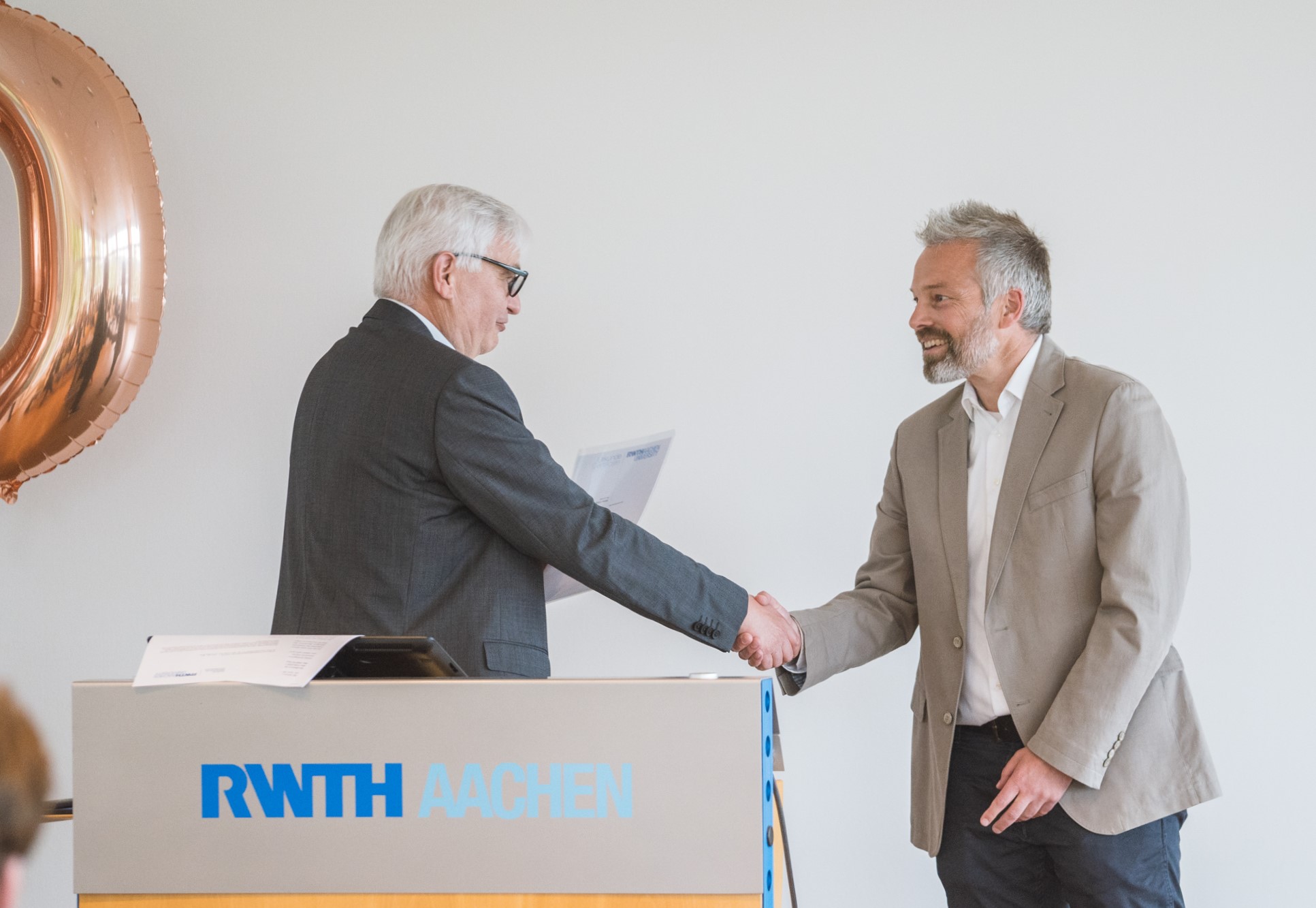
Prof. Dr.-Ing. Albert Moser, Dean of the Faculty of Electrical Engineering and Information Technology and Prof. Dr.-Ing. Marc Adrat, Research Group Manager for Software Defined Radio (SDR) at the Fraunhofer Institute for Communication, Information Processing and Ergonomics (FKIE) in Wachtberg and lecturer at the IKS at RWTH Aachen University. © IKS
One of the highlights of the event was the formal appointment of Marc Adrat as Honorary Professor. He is an internationally recognized expert in the field of Software Defined Radio, which involves programmable digital radio systems where essential transmission functions such as coding, error correction, modulation, and synchronization are implemented via software. His teaching activities focus on modern error-correcting channel coding in the course „Modern Channel Coding for Wireless Communications“, which is offered as part of the regular „Master’s programme in Electrical Engineering and Information Technology“.
“His expertise and commitment will undoubtedly continue to have a significant impact on the quality of our teaching and research,” stated the IKS.
The appointment will also strengthen the collaboration between the Faculty of Electrical Engineering and Information Technology and the Fraunhofer Institute for Communication, Information Processing and Ergonomics.
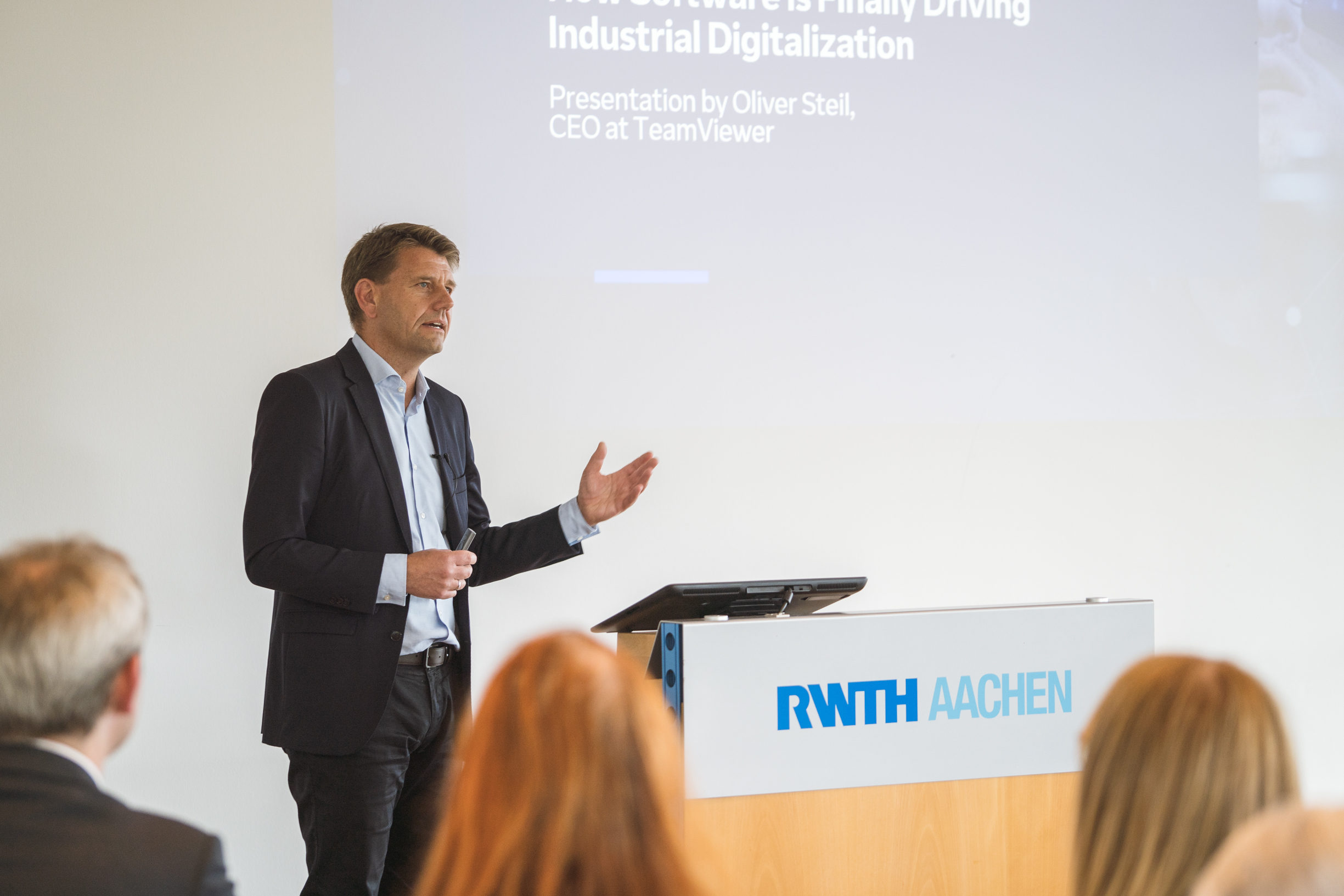
Oliver Steil, former employee of the IKS and current CEO of TeamViewer. © IKS
Another highlight was Oliver Steil’s presentation entitled “Digital Twins, AI, Spatial Computing, et al. – How Software is Finally Driving Industrial Digitalization”. He also spoke about his personal career, which is rooted in the Institute and ultimately led Oliver Steil to his current position as CEO of TeamViewer. The guest of honour provided fascinating insights into the challenges and opportunities of leading a global technology company.
The presentation ended with a lively question and answer session, where attendees had the opportunity to speak directly to Oliver Steil. Questions ranged from specific technical aspects to strategic considerations.
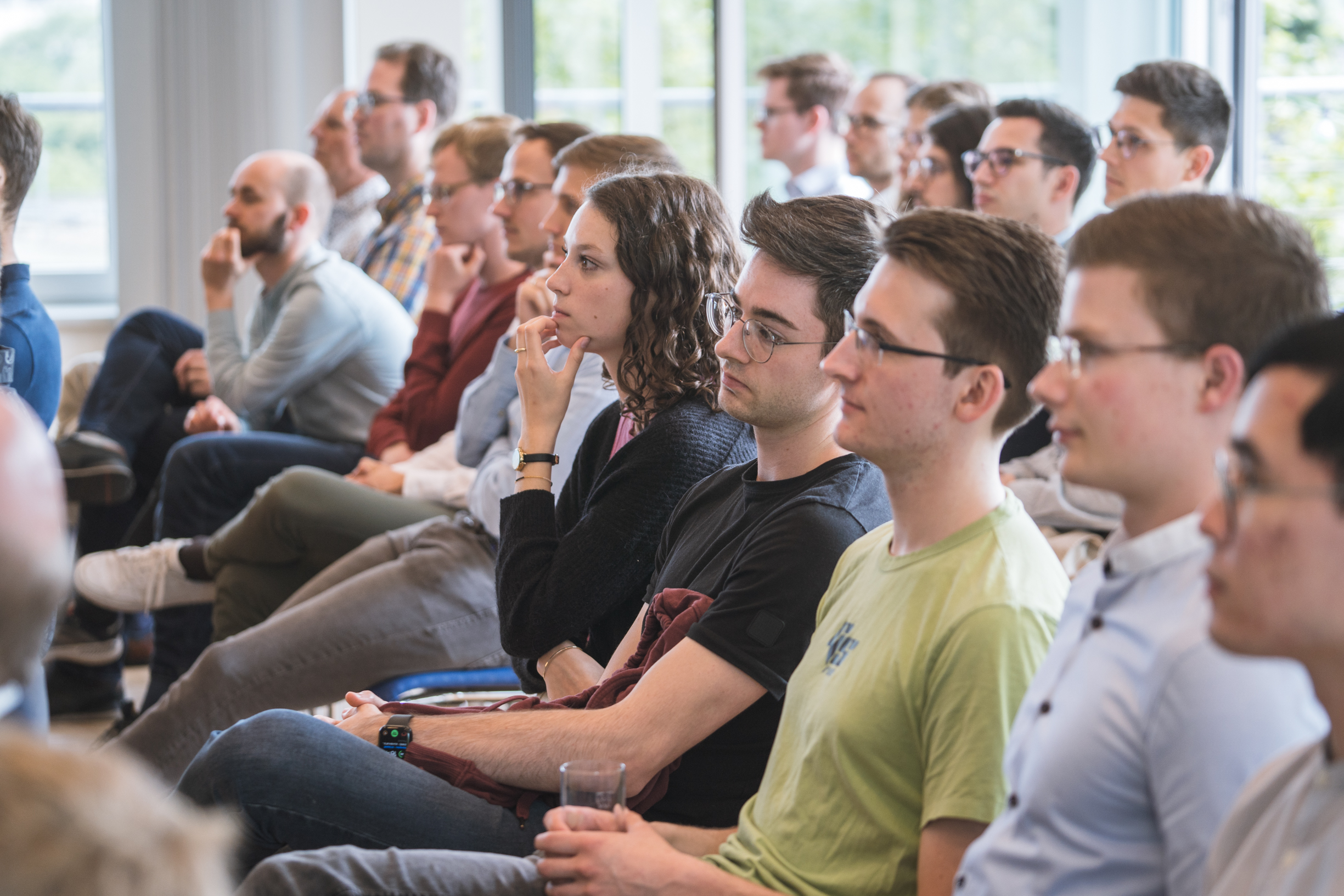
© IKS
Further information can be found on the homepage of the Institute of Communication Systems.
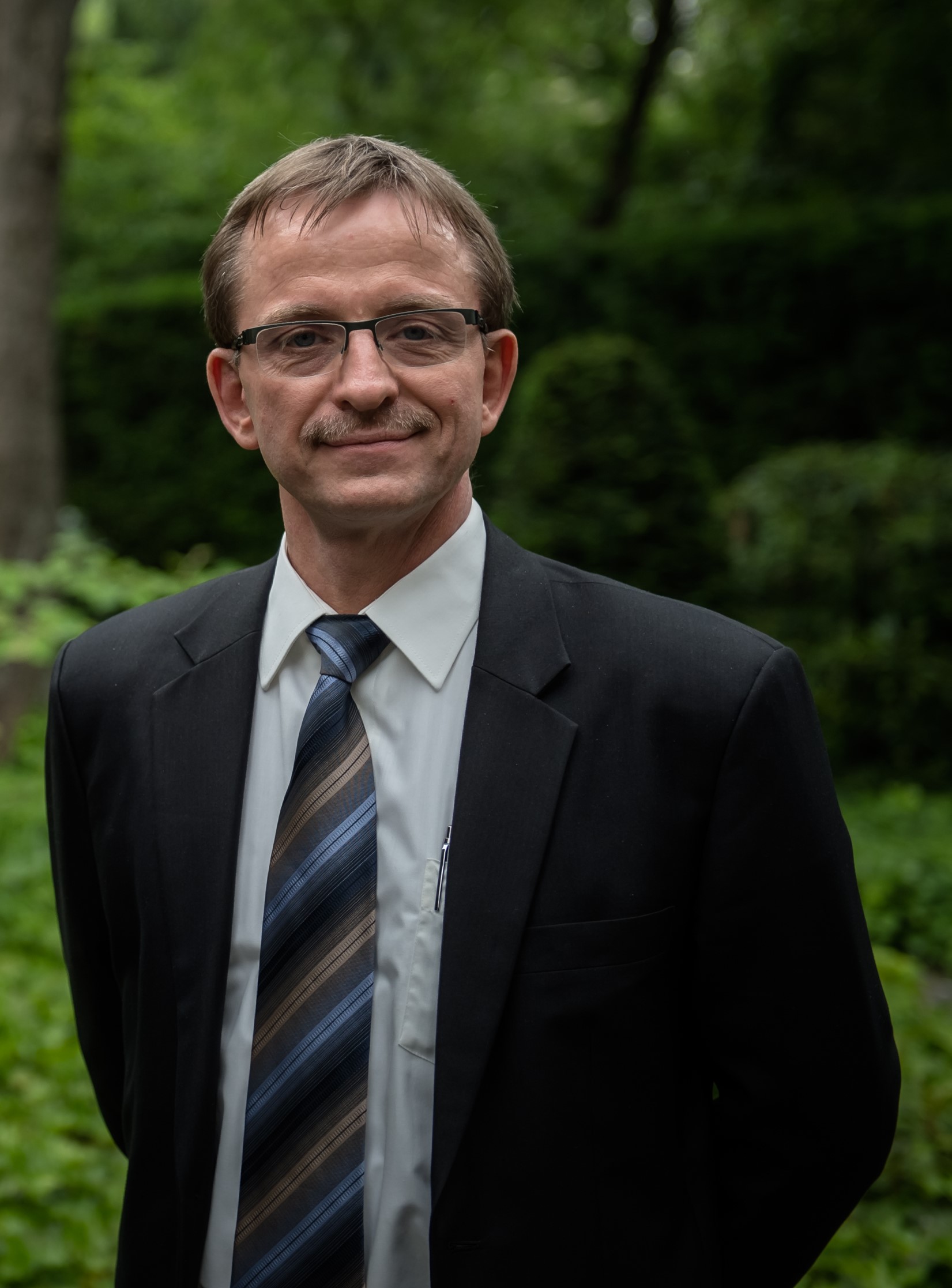
© Andreas Endermann
Professor Steffen Leonhardt, holder of the Chair of Medical Information Technology (MedIT) at the Helmholtz Institute for Biomedical Engineering at RWTH Aachen University, will moderate the new lecture: ‘Continuous In-Vehicle Health Monitoring Enabled with Multimodal Signal Fusion’ on 11 July 2024.
We are delighted to welcome Dr Joana M. Warnecke from the Peter L. Reichertz Institute for Medical Informatics at the Technical University of Braunschweig and the Hannover Medical School. Dr Warnecke will present her pioneering research into continuous health monitoring in vehicles. Her work focuses on the development of a redundant sensor system that enables reliable measurement of heartbeat and respiration rate. These systems use a Convolutional Neural Network (CNN) based architecture for data fusion and take into account additional sensors such as steering wheel angle and acceleration to improve signal quality.
“Our findings indicate that over half of the driving time can be utilized for in-vehicle heartbeat and respiratory rate monitoring, highlighting the efficiency and practicality of the proposed approach,”
states Warnecke.
This technology could make a significant contribution to the early detection of cardiovascular and chronic respiratory diseases by being seamlessly integrated into everyday life.
The ‘Colloquium on Biomedical Engineering and Related Areas’ is a regular series of events organised by RWTH Aachen University. The aim of the series is to provide an interdisciplinary education in these fields and to promote the interdisciplinary exchange of ideas. All students, clinicians, engineers and scientists are invited to attend this exciting lecture and exchange ideas with experts in the field of biomedical engineering.
The event will take place from 5 to 5:45 pm at the Helmholtz Institute for Biomedical Engineering at RWTH Aachen University, Pauwelsstraße 20, 52074 Aachen, Germany, seminar room 2.70. It will be coordinated by Prof. Dr. Klaus Radermacher, Chair of Medical Engineering, RWTH Aachen University. For further information please contact the secretariat at meditec@hia.rwth-aachen.de or call +49-(0)241-80 23870.
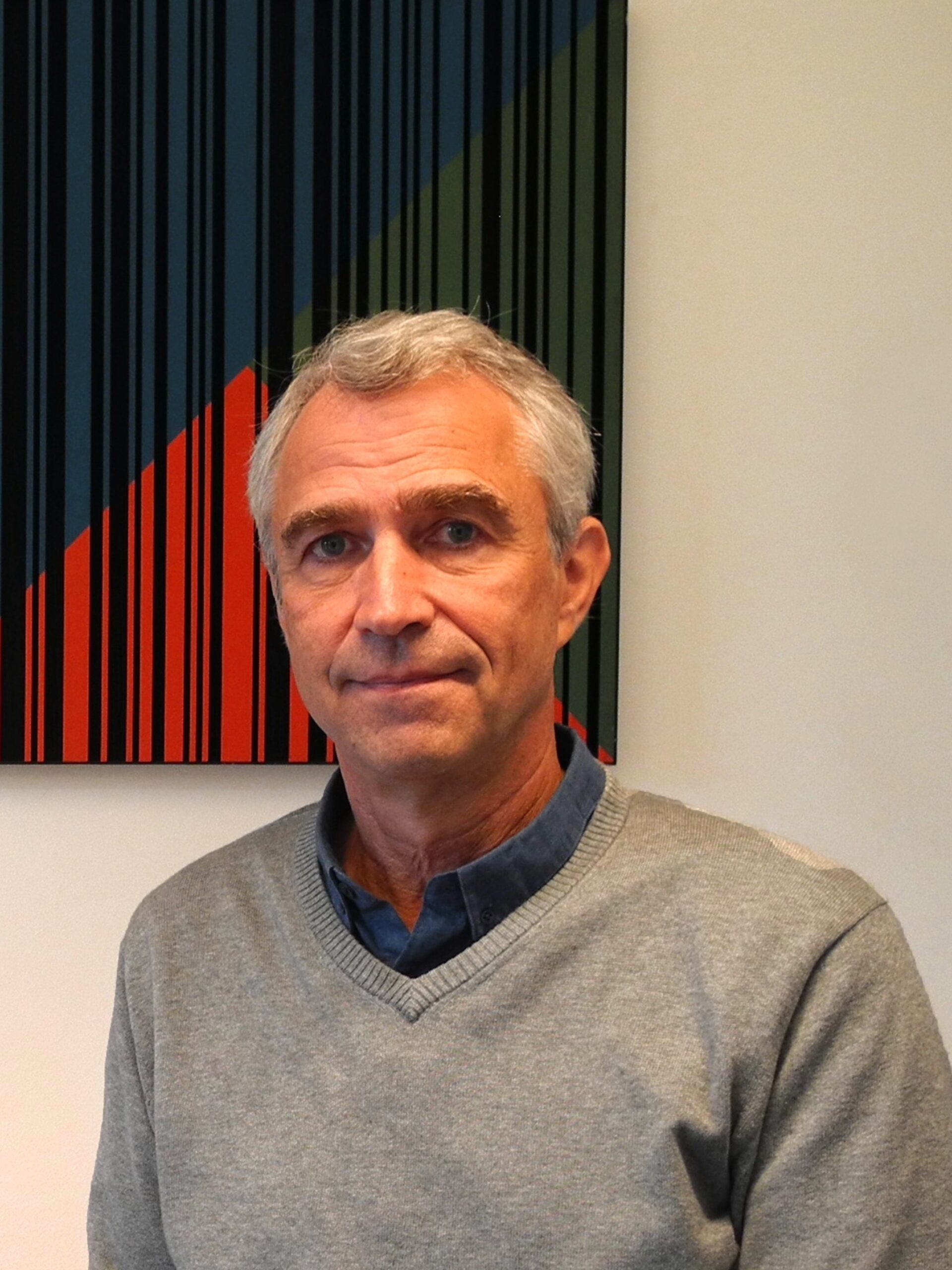
© IHTA
The first non-American president of the Acoustical Society of America (ASA) is Professor Michael Vorländer, Chair of Technical Acoustics at RWTH Aachen University.
Founded in 1929, the ASA is the world’s largest professional society in the field of acoustics. Professor Vorländer will serve as a member of the ASA Board of Directors from May 2024 to May 2027 and as President in 2025/2026.
“It is a great honour to be elected President of the ASA. Being the first non-American President is an important step for international cooperation in acoustics and underlines the increasing importance of international perspectives in the scientific community”,
says Vorländer.
With approximately 7,000 members, the ASA is dedicated to the advancement and dissemination of knowledge in the field of acoustics. The society covers a broad spectrum of acoustical disciplines, supports research, education and application of acoustical principles, develops standards and guidelines, organises conferences and publishes scientific journals such as the renowned “Journal of the Acoustical Society of America”.
For more information about the Acoustical Society of America, please visit their website.
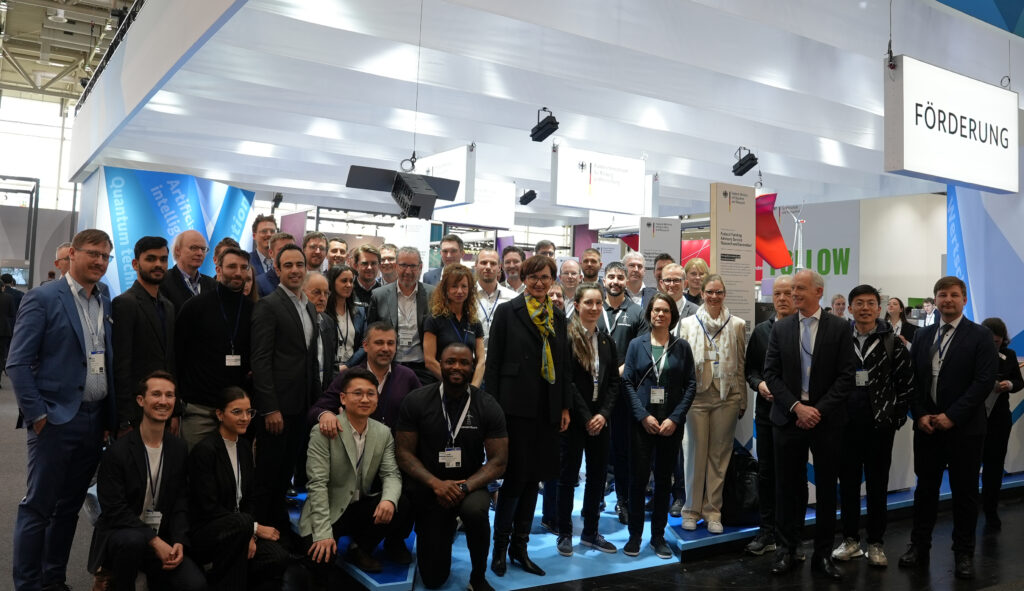
© Chair of Distributed Signal Processing
One of our chairs was also represented at the Hannover Messe this year. The ITAR team (Innovative Test Methods for Radio Systems Based on Augmented Reality Technologies) presented the cutting-edge research of the start-up from the Chair of Distributed Signal Processing at the stand of the Federal Ministry of Education and Research (BMBF) at the Hannover Expo in April.
ITAR, a branch of the 6G Research Hub, is funded by the Federal Ministry of Education and Research as part of the Startup.Connect programme. The team welcomed Minister Bettina Stark-Watzinger from the BMBF and State Secretary Prof Dr Sabine Döring as guests. Students, engineers and managing directors took the opportunity to see the team’s innovative solutions and share them with leading industry representatives. This prepared the way for future collaborations. We would like to thank the BMBF, familie redlich A.G. and the team at the Karlsruhe project management organisation for their support.
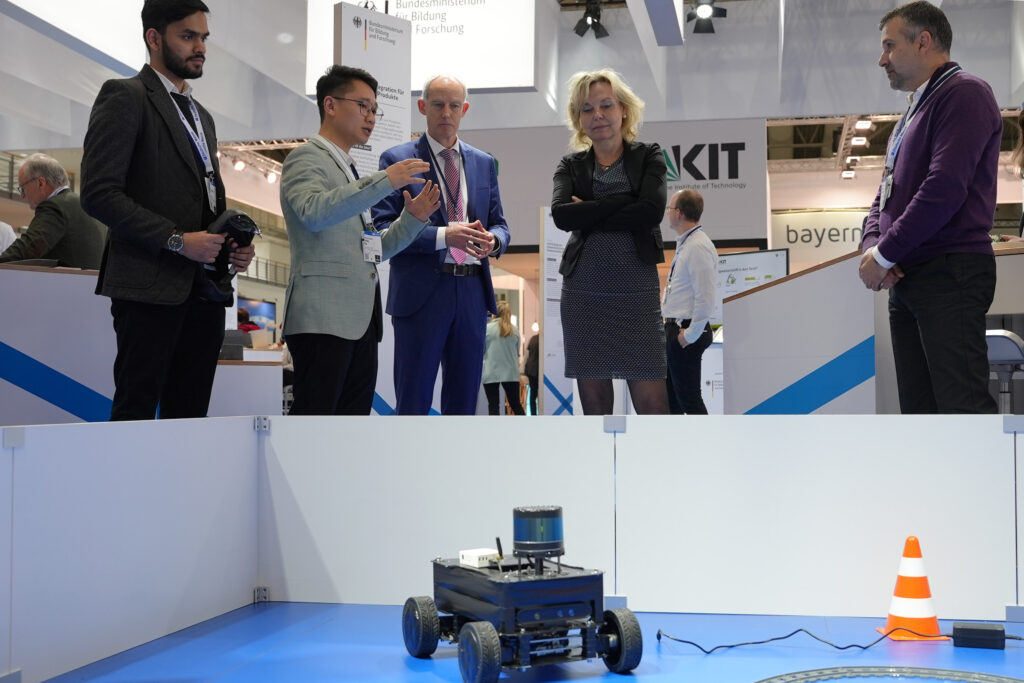
© Chair of Distributed Signal Processing
Further information on ITAR can be found on the chair’s website.
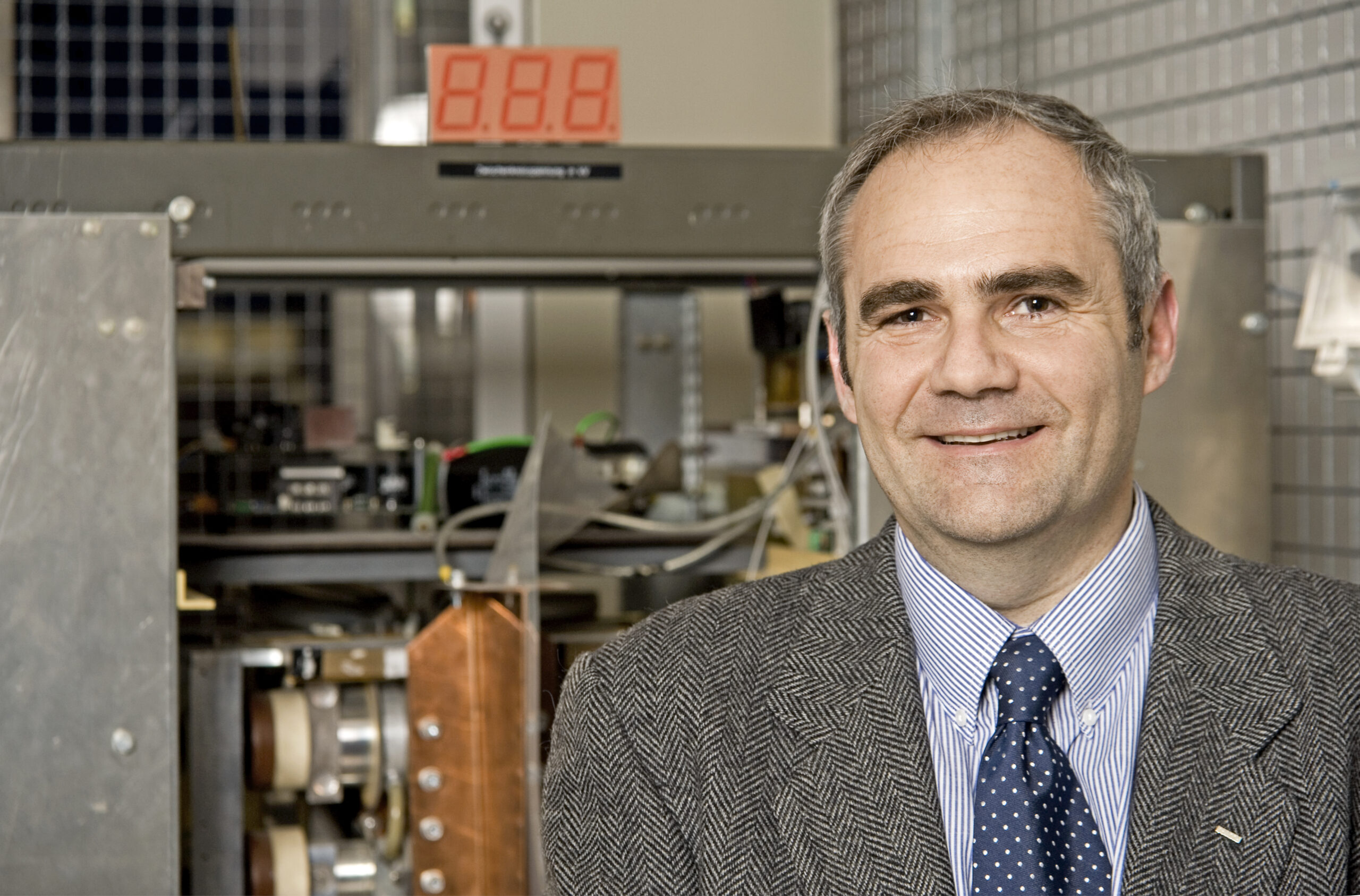
© Peter Winandy
On 17 April, Professor Antonello Monti of RWTH Aachen University will speak at the scientific meeting of the engineering and economics class of the “Nordrhein-Westfälische Akademie der Wissenschaften und der Künste” about the development goals of his discipline in terms of solving major societal challenges.
Against the background of the international situation, the energy transition process is more important than ever.The necessary technological transformation of the energy system must be approached from two angles: On the one hand, a new major player in energy supply has emerged: renewable energy. On the other hand, there are new consumers such as electromobility and heat pumps. Digitalisation is proving to be a key enabler in this process. You could even say that digitalisation is not an option, but a necessity. The power system is consequently becoming a large, programmable cyber physical infrastructure with a high level of complexity. In his presentation “The Digitalisation of the Energy Systems: from the electrons to the cloud”, Professor Monti addresses this complexity by analysing the solutions currently being developed for the different levels of the infrastructure.
” Rethinking the whole architecture means reconsider the basic principles of operation of the new power system but also the corresponding IT systems”,
announced Professor Monti, Director of the Institute for Automation of Complex Power Systems (ACS).
So what does it mean to run a digital grid? And will we be able to build a digital grid that is as reliable as the current infrastructure?
The solutions he proposes in his presentation are the result of concrete experience from large European research projects. Professor Monti leads a research group with about 50 full time scientists working intensively on the the border between energy and information and communication technologies. He is responsible for coordinating some of the most relevant European projects in this field, such as OneNet, TwinEU und int:net. His research work has received several awards, including the prestigious “IEEE Field Medal Award for Innovation in Public Infrastructure” and the “NRW Innovation Award”.
In another presentation – “Sustainable metals: contributions from basic research” – Professor Dierk Raabe from the Max Planck Institute for Sustainable Materials will address the question of whether we can succeed in decarbonising a key industry with “green steel”.
Further information on the Nordrhein-Westfälische Akademie der Wissenschaften und der Künste can be found on the organisation’s homepage.
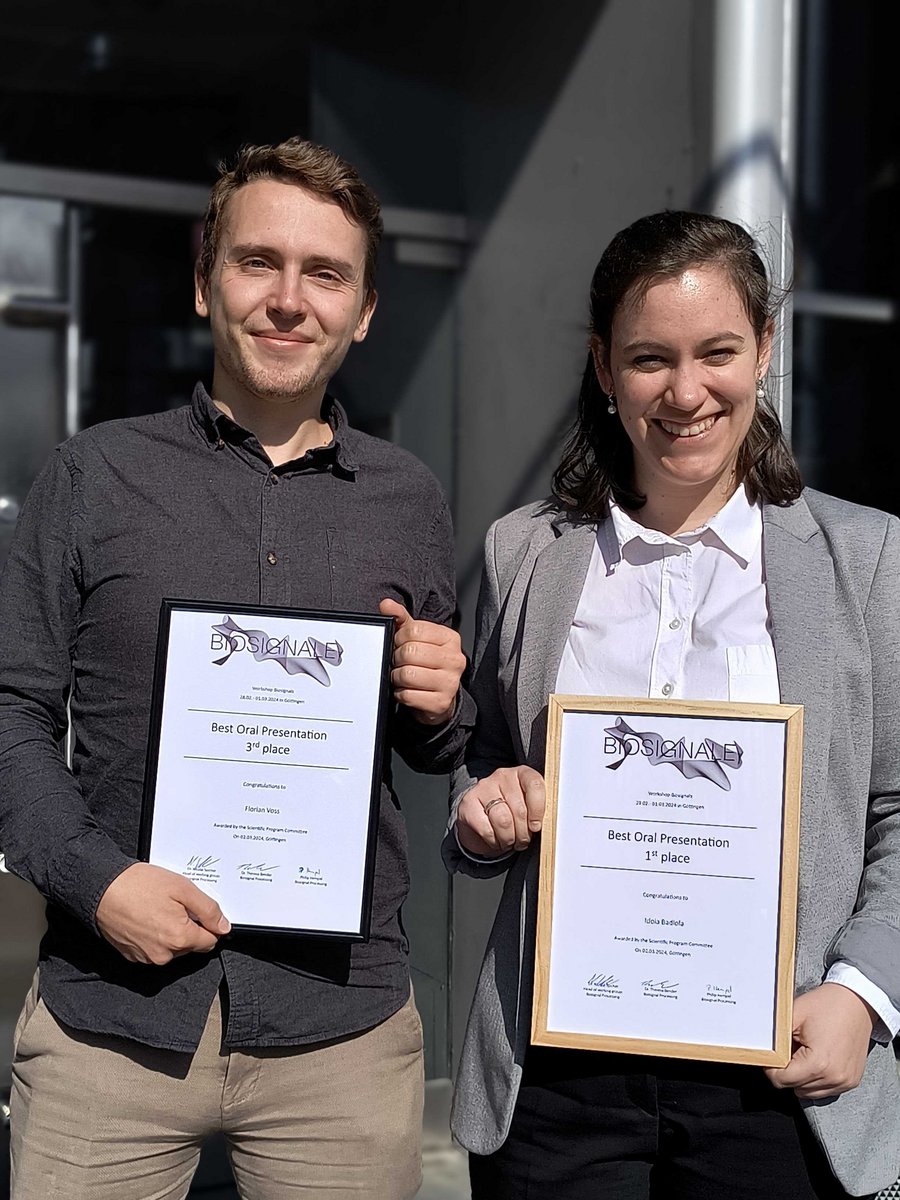
© Medical Information Technology (MedIT)
Idoia Badiola and Florian Voss from the Chair of Medical Information Technology (MedIT) at the Helmholtz Institute for Biomedical Engineering at RWTH Aachen University successfully participated at the Workshop Biosignals 2024, which took place from 28th February to 1st March in Göttingen.
The technical committees “Biosignals” and “Magnetic Methods in Medicine” of the German Society for Biomedical Engineering cordially invited all interested scientists, especially from the field of early career researchers, to the Workshop Biosignals.
Accepting the challenge Idoia was awarded the 1st place in the category “Best Oral Presentation” for her presentation “Mapping of peripheral venous hemodynamics using a low-cost camera: a proof-of-concept”. Florian achieved the 3rd place with his presentation “Camera Fusion for Improving Body Part Segmentation of Preterm Infants”.
“Congratulations to our colleagues Idoia Badiola and Florian Voss on their outstanding achievements”,
commented MedIT.
With this event, the committees are continuing a more than 20-year tradition of successful collaboration. Important components of the workshop were keynote speeches by young scientists as well as detailed poster presentations with short talks in which each submitted paper could be discussed constructively and critically. Submissions on biosignal analysis, biomagnetism and new related topics such as artificial intelligence and medical data science were welcome.
The event was hosted by the Biosignal Processing Group of the University Medical Centre Göttingen and supported by the Medical Image- and Signal Processing Working Group of the German Association for Medical Informatics, Biometry and Epidemiology.
“Special thanks go to the organisation team of the workshop, particularly Dr. Nicolai Spicher, Theresa Bender and Philip Hempel”,
added the Chair of Medical Information Technology.
Further information on the Workshop Biosignals can be found on the event’s homepage.
Find out more about the Chair of Medical Information Technology (MedIT) here.